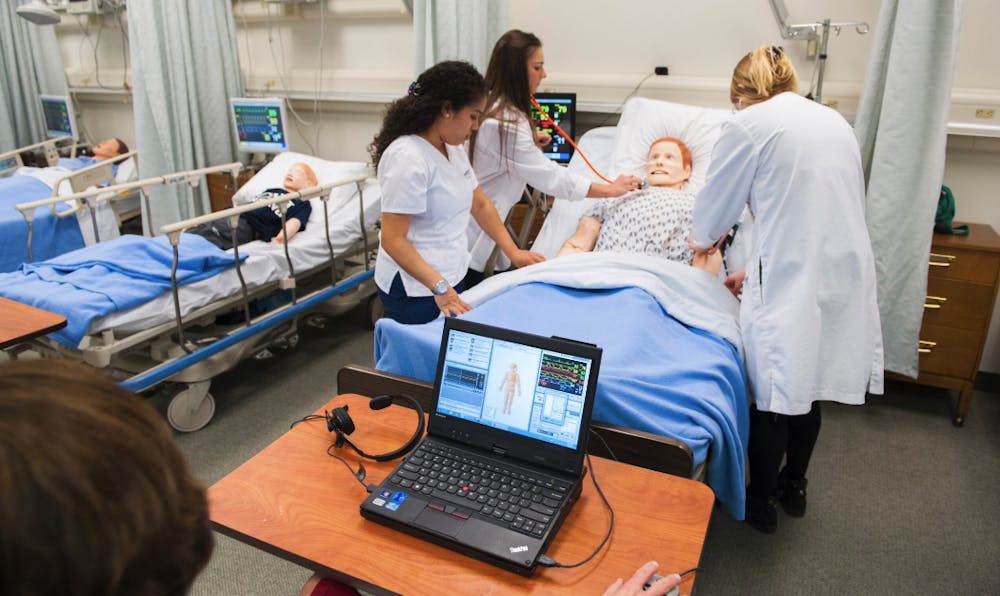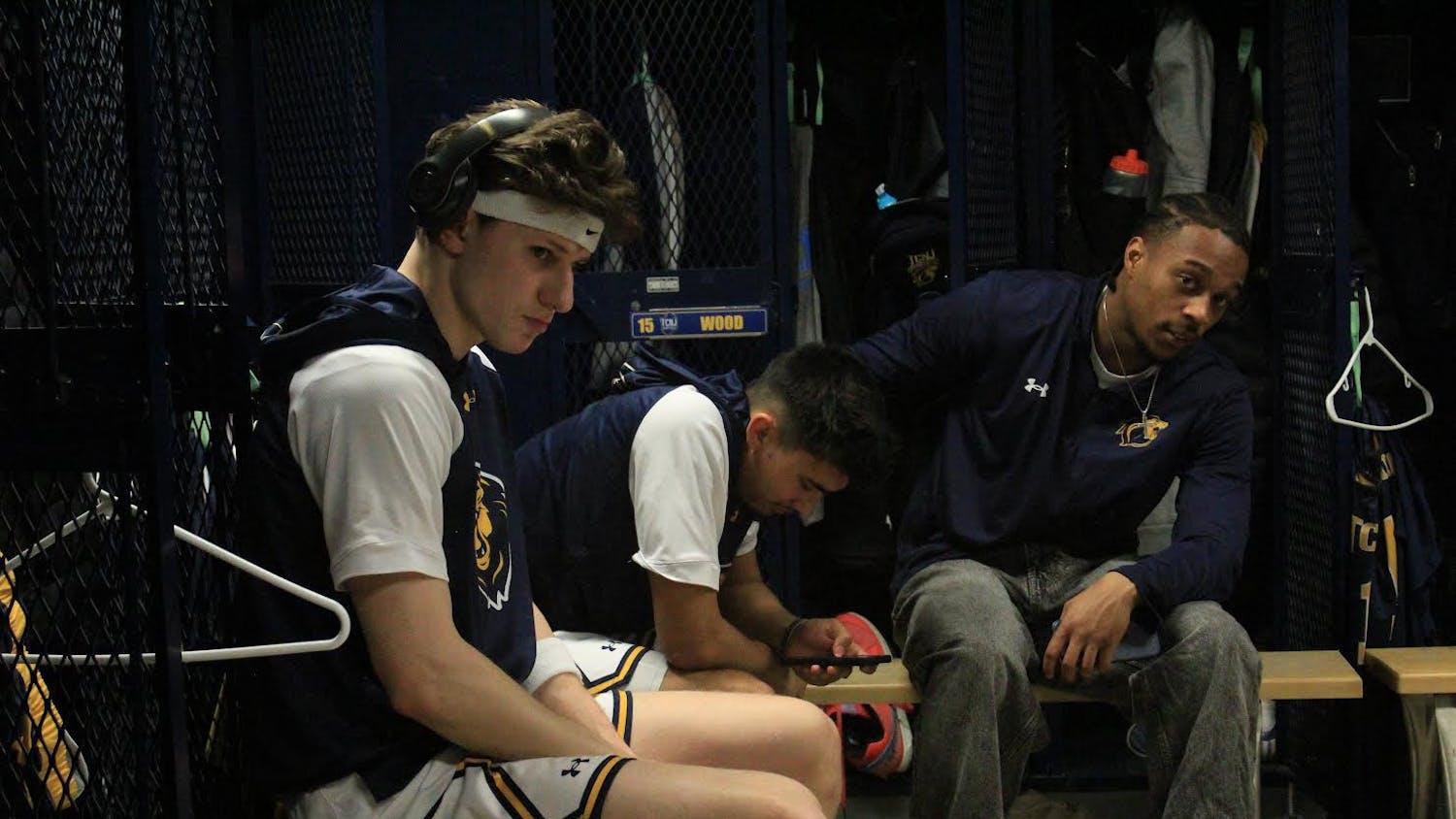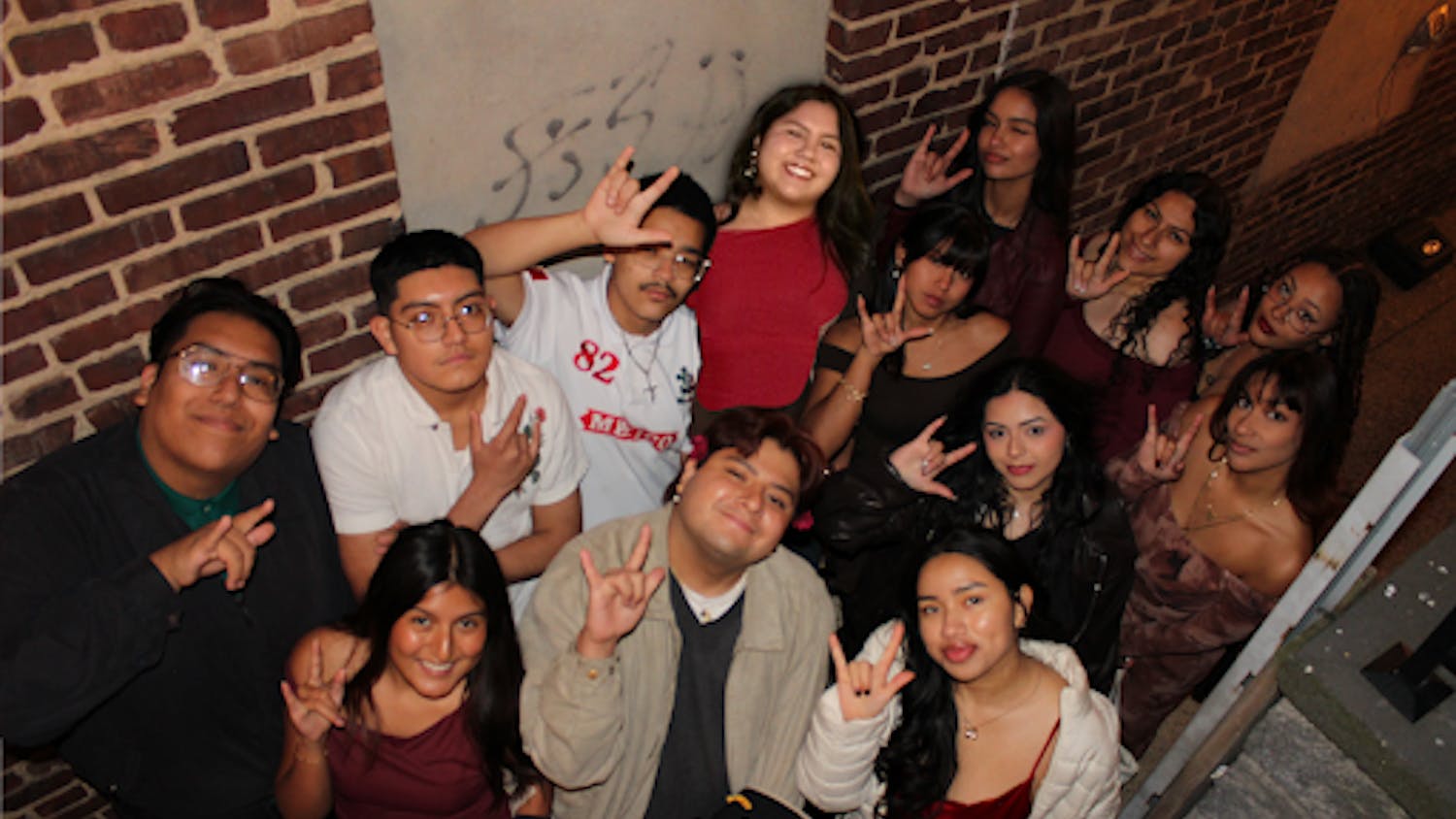By Micaela Soler
Correspondent
In a large classroom in Forcina Hall with furniture ready to be moved around and headsets ready to be placed over eyes, the College’s nursing department is slowly introducing virtual reality, or VR, into simulation laboratories as a method of teaching for nursing students.
A handful of junior nursing students are working with Chelsea Lebo, a professor of nursing and the simulation coordinator at the College, to familiarize themselves with VR learning and determine if it can be fully integrated into nursing simulation labs.
“In nursing, we need to know how to do some things that we can only learn virtually, so a lot of our learning is through doing simulations where students walk through real scenarios and practice in a safe, comfortable and controlled environment,” said Lebo. “The VR method is a bigger benefit than just using a mannequin.”
This spring semester, the nursing department received a grant to cover the price of VR equipment and now, the department has four Oculus Quest 2s, the goggle headsets the students use to immerse themselves into a virtual scenario. The simulation department purchases scenarios from the company to use on students.
“We have the ability to have a student put the goggles on and visit a real-patient scenario,” said Lebo. “I can watch what they’re doing on an iPad in order to help them and talk them through any mistakes they made.”
Currently, the usage of the VR equipment is rather limited and mainly used on junior-level students who miss a clinical rotation make-up, or if they have questions from their Medical Surge course and want to run through a specific scenario.
“VR gives a lot of opportunities,” said Lebo. “If someone is having trouble and needs a little more help, I can have them do a scenario and work through any issues.”
Students can work on several different scenarios such as a child with an asthma attack, or even psychological situations such as an adult who is suicidal or a teenager that is experiencing an eating disorder. With the help of Lebo, students learn how to talk to these patients. More complex medical situations can be worked on as well, such as when someone is having an allergic reaction and cannot breathe or when a patient has an infection and the nurse has to trouble-shoot where it is coming from to make them stable.
“There’s a huge variety of scenarios that students really need to see before they leave nursing school, but you can never guarantee what type of patient or situation they will have on the floor,” said Lebo. “With this, we can expose these scenarios to them in some shape, way or form through the help of virtual reality.”
Prior to Covid-19, Lebo brought awareness to the idea of virtual reality-teaching to the nursing department and faculty.
“The library has some VR appliances for gaming and I used them as a resource for our new teaching advances,” explained Lebo. “We downloaded their programs into the library’s gaming computer and tried to get a few faculty and nursing students to come over and try it.”
Students loved it, but faculty members were not convinced, especially due to the expense, explained Lebo. She and the department were left thinking that VR-teaching was not going to work.
“Soon Covid hit, and the question of ‘how are we going to figure simulations out?’ came about stronger than ever,” said Lebo. “Once we got through the initial Covid chaos, we decided to explore VR again, and Covid proved to us that this can work and we continued from there. Covid was definitely a blessing in disguise for us to begin looking into VR.”
Lebo hopes for VR-learning to be integrated more commonly within the nursing departments, especially in areas such as pediatrics and maternity, seeing as they are challenging clinical experiences for nursing students. In the Ewing and Trenton area, and taking into consideration the several nursing schools in close radius, there are not enough locations for all students to be able to attend and get their experience.
“I could have half of my students work through really important situations in the VR, while the other half goes to clinical and they rotate,” said Lebo. “For experiences like maternity, we don’t have a mannequin that gives birth, nor can we ensure that students will get to witness a birth while on the floor during their rotation, so it’s nice to have something that can provide students with the opportunity to see and learn how to be able to take care of patients.”
As virtual reality becomes more of a common topic, Lebo hopes that the College will consider adapting their courses from different departments to incorporate VR learning.
“I envision to hopefully collaborate with more people across campus because, especially in this generation, a lot of students have some sort of familiarity with VR and some even have their own sort of Oculus VR appliance,” said Lebo. “It’s very interesting to learn and offer a different modality to learn.”
Lebo states that she would love to see science classes consider the applications offered for courses such as Anatomy, in which a student could have hands-on experience with bodies.
“Even with communications, there are apps where students can practice speaking and interviewing, and hopefully the school can look into offering possibilities like these,” said Lebo. “We are just starting to dabble in it, which is amazing because in healthcare simulation, we are starting to see them using VR a lot more, and I hope we can keep the momentum up because we are truly at the forefront of this new advance.”
VR will never replace what nursing students learn with mannequins, “but students are very excited, even prospective students,” said Lebo. “It is a great opportunity for students to critically think and not only use their hands, but get the environmental experience they deserve to receive in their education.”







